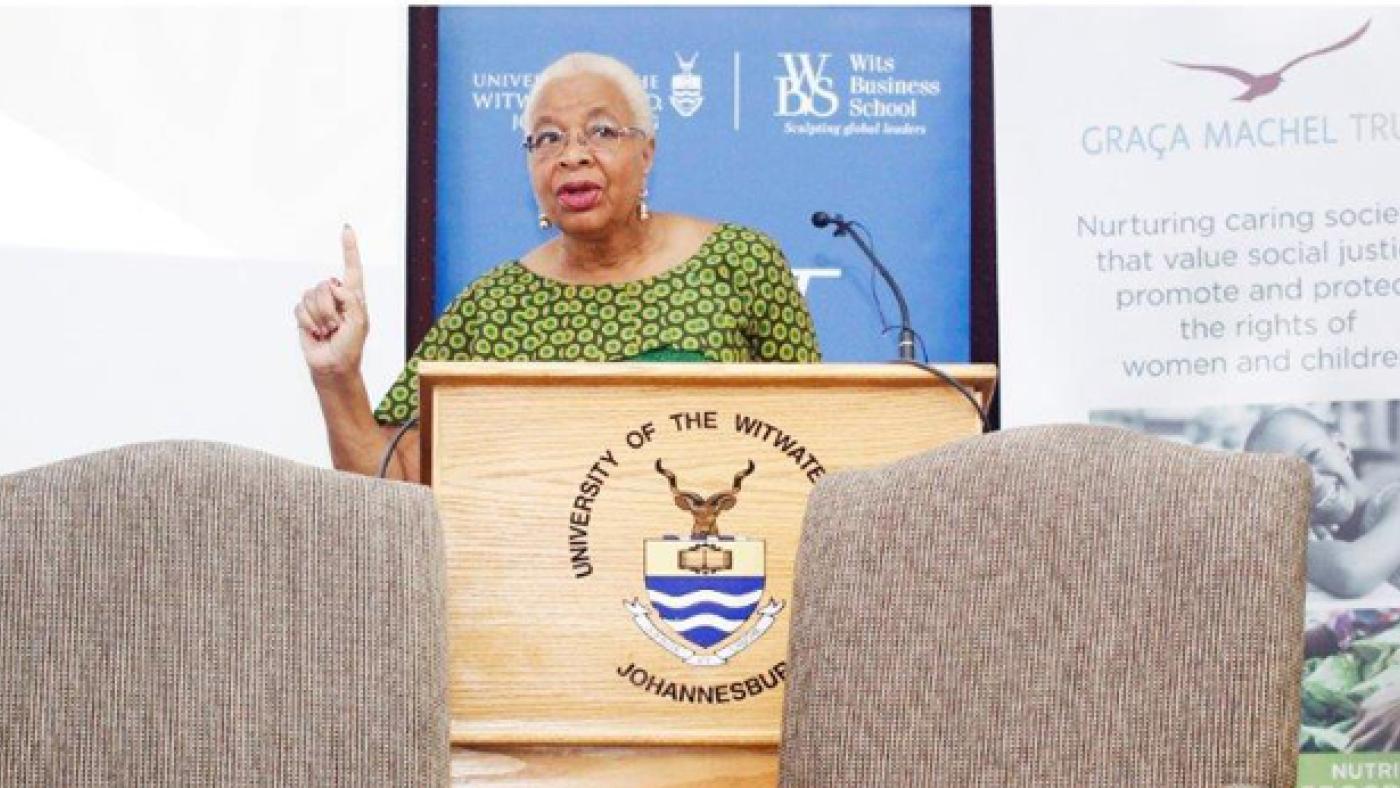The eye of the storm: Disaster Management Planning in the aftermath of Cyclone Idai
In March 2019, southern Africa was pounded by Cyclone Idai, the magnitude of which was unprecedented in recorded history. The cyclone hit Mozambique, Malawi and Zimbabwe, leaving hundreds dead and tens of thousands homeless. In the face of climate change, such extreme weather events are likely to recur. What are we doing to prepare? How do governments, NGOs, local communities, the private sector and the defence forces co-ordinate their efforts to minimise the scale of human suffering?
It is against this background that the African Centre on Philanthropy and Social Investment (ACPSI) at Wits Business School convened a public dialogue on disaster management last Friday, in partnership with the Graça Machel Trust and the Mandela Institute for Development Studies (MINDS).
Two panels, moderated by broadcast journalist Bongani Bingwa, comprised experts in disaster management or relief work, representing a range of organisations, including the finance sector, philanthropic organisations, government departments and academia.

Stateswoman and humanitarian Graça Machel, who delivered the keynote address, urged the panellists to come up with concrete and “actionable recommendations”, saying that, given the roles that other nations played to assist the victims of Cyclone Idai, “it is possible to come together”.
She also made an impassioned plea not to see the victims as mere statistics, but to put a human face to the tragedy.
“We talk of infrastructure, to rebuild schools, railways, clinics, but how much are we focusing on human rebuilding? The disasters leave behind traumatised people, deprived of everything, including the loss of their dignity,” she said.
In a village that has been affected, everyone suffers. The entire social fabric of a community needs to be restored.
Two researchers from the APCSI, Wycliffe Ouma and Melody Mandevere, presented their findings after field trips to Malawi and Zimbabwe, respectively, post Cyclone Idai.
The impact on Zimbabwe, while not as severe as Mozambique, was significant. In that country, more than 340 people died and 17 000 people were displaced. 971 schools were damaged or destroyed, impacting 60 000 school children. In Malawi, more than 60 deaths were recorded and over 90 000 people were displaced. The infrastructural impact included 129 bridges and 1 841km of roads that were either damaged or destroyed.
The first panel of speakers tackled the topic of the challenges that disasters cause. Speakers included Gertrude Ghimange from the Catholic Commission for Justice and Peace, Professor Hassan Kaya from the Centre for Indigenous Knowledge Systems, UKZN, JP Blignaut from Business Unity South Africa/Bytes Insurance and Etienne van Blerk from the Department of Defence.
The second panel of speakers included Brian Bogart from the World Food Programme, artist/musician Berita Khumalo, Dr Kennedy Mubaiwa from The Higherlife Foundation, Dr Njongehnhle Nyoni from the Food, Agriculture and Natural Resources Analysis Network and Andrea Wojnar from the United Nations Population fund. They tackled the way forward, focusing on an accurate response plan and a call to action.
A number of key issues and points of consideration arose after a morning of intense discussion. There was a general consensus that disaster management is highly complex, necessitating close collaboration between all agencies. There is a need to connect local, national, sub-regional, continental and global players. It was also agreed that the financial impact of storms needs to be properly understood. We need to mobilise society and the youth, and take ownership at regional level. It is not purely about re-building roads, houses and schools but also the psycho-social impact of trauma on individuals, families and communities, and recognising the dignity of the people who have suffered.
Finally, it was agreed that grassroots innovation needs to be taken into account, that communities ‘on the ground’ need to be empowered in helping to mitigate the impact of weather devastation.
In the end, disaster management is about being prepared. As Mrs Machel noted: “In Mozambique we were not caught unawares; we knew this storm was coming. But we did not prepare adequately. We need to delve further into the dynamics of disaster management and understand why that is the case. Let us do whatever we can to save lives.”



